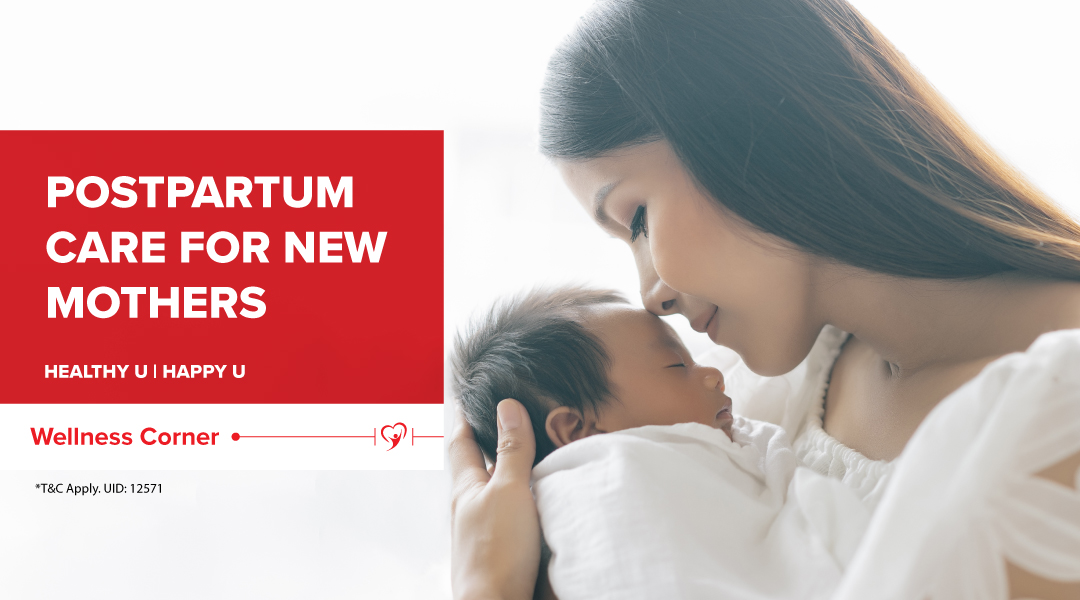

What is Postpartum Care?
- Overview
- Importance
- Areas of Postpartum Care
- Complications
- Risk Factors
- Tips for Postpartum Care
- Conclusion
- FAQs
Overview
The postpartum period begins soon after delivery. It is the window of initial 6 weeks after childbirth which is a vulnerable time for both new mother and baby. The care needed during this period is referred to as postpartum care which is important for short & long-term health consequences of mother and newborn. It ends when the mother’s body has nearly returned to its pre-pregnant state.
During these weeks, you’ll bond with your baby and you’ll have a post-delivery checkup with your doctor. Duration of postpartum care may be extended to 4-6 months due to physical and emotional issues and complications as the main motive of this care is to establish an excellent health for both and also help maintain good motherhood.
Importance of Postpartum Care

Post-partum care is very important as it can help protect both the new mother and baby from various complications occurring during the initial stage after delivery. . This care plays a vital role as it helps to detect problems in the early stages before they can progress and become life-threatening. Postpartum care can help new mothers that are at high risk of health complications.
It is important to obtain appropriate care services to protect the health of mother and baby. Postpartum care is beyond attending the necessary medical examinations. It is about promoting a healthy lifestyle with good nutrition, detecting and preventing diseases, supporting women who may be experiencing intimate partner violence and ensuring access to sexual and reproductive health including postpartum family planning are key to quality postnatal care.
Different Areas of Postpartum Care
There are different areas that require effective care during the postpartum period. This includes external, internal, and mental care each of which requires proper maintenance to ensure that they can be restored to the conditions prior to post-partum.
1. External Care
This includes dealing with the changes in body shape after giving birth along with other issues like issues with breastfeeding or sore nipples. It also covers healing of the scars without problems of infection in cases of C section delivery. Many women also experience hair fall after giving birth which may become a potential problem and might be dealt with under expert supervision.
2. Internal Care
This deals with all aspects of internal recovery after childbirth. This includes symptoms such as physical fatigue, body aches, cramps, pain, and constipation. With internal care, it helps to lessen these elevated symptoms along with simultaneously keeping an eye on health complications.
3. Mental Care
It is crucial to take care of emotional and mental wellbeing after delivery as the body undergoes a strenuous period which requires recovery. Also, due to hormonal fluctuations in the initial period can lead to emotional complication like post-partum depression. A proper mental care during this period can help to avoid and deal with some serious issues including anxiety, low confidence & self-esteem levels, and post-partum depression.
Postpartum Complications
Here are some of the most common postpartum complications
1. Excessive Bleeding
While it is normal to bleed for 2 to 6 weeks after giving birth, some women can experience excessive bleeding after childbirth.
Check with your Doctor if -
- If your blood flow hasn’t slowed and you continue to pass large clots or bleed red blood after 3 to 4 days.
- If your blood flow has slowed and then suddenly begins to get heavier or returns to bright red after becoming darker or lighter.
- If you’re experiencing significant pain or cramping along with an increase in flow.
2. Infection
Vaginal tearing during childbirth is common among first-time mothers which often require stitches. And if you give birth via C-section, you’ll get stitches or staples at the incision site. This area sometimes can get infected and cause discomfort. Some women also experience infections, like urinary, kidney, or vaginal infections after birth.
Check with your Doctor if -
Signs of infection include:
- Increasing pain
- Fever
- Redness
- Warmth to the touch
- Discharge
- Pain when urinating
3. Incontinence or Constipation
Experiencing urinary or fecal incontinence immediately after birth is common due to weakened muscles or injury due to birth. While it is not dangerous, this complication can cause discomfort, embarrassment, and inconvenience. You may also struggle with constipation and hemorrhoids.
Check with your Doctor if -
- The issue continues to persist even after few weeks of childbirth. Your doctor may be able to suggest some exercises to strengthen the pelvic floor area.
- In some cases, you may need further medical or surgical treatment.
4. Postpartum Depression
Most women experience some form of baby blues like feeling a little up and down, or feeling more weepy than usual. This is common during the first week after delivery.
Check with your Doctor if -
- This feeling lasts more than a few weeks or interferes with caring for your baby. It may mean that you’re experiencing postpartum depression.
5. Other issues
Other serious complications following childbirth are:
- Cardiovascular diseases
- Other medical conditions often reflecting pre-existing illnesses
- Cardiomyopathy - A disease of the heart muscle that makes it harder for your heart to pump blood to the rest of your body.
- Thrombotic pulmonary embolism - A blockage in one of the pulmonary arteries in the lungs often caused by blood clots that travel to the lungs from the legs.
- Stroke
- High blood pressure (hypertensive) disorders of pregnancy
- Amniotic fluid embolism - A rare but serious condition that occurs when amniotic fluid or fetal material, such as fetal cells, enters the mother's bloodstream.
- Anesthesia complications
- Sepsis
While they are less common, they need to be addressed immediately for your health and safety.
Risk factors for Postpartum Complications
The overall risk of dying of a pregnancy-related complication is low. But women with chronic conditions such as cardiac disease, obesity or high blood pressure are at greater risk of dying or nearly dying from pregnancy-related complications. If you have these risk factors, monitoring your postpartum health is particularly important.
Tips for Postpartum Care
New mothers can do a number of things to take care of their health and ensure proper recovery. This includes:
- Resting – First few weeks after delivery is important for the mother to rest as it helps promote healing and faster recover. Try and sleep or rest when your baby sleeps.
- Avoid heavy lifting – Lifting anything that’s heavier than your baby should be completely avoided, especially if you’ve had a C-section delivery as it can affect your recovery.
- Eat Well – Eating a well-balanced and healthy diet will help in faster recovery of the mother. It is also important for baby’s growth and development, in case you are breastfeeding.
- Limit stair climbing – Try to limit the number of stairs you take after delivery as it can affect your healing.
- Maintain basic hygiene – Following basic hygiene such as washing hands before feeding or touching your baby can avoid development of infections.
- Ask for help – Reach out to family and friends in times when you require help.
- Continue taking your prenatal vitamins every day.
Conclusion
Women and newborns require support and careful monitoring after birth. There are skilled health personnel and community health workers who support women and newborns after birth. Any emotional and physical changes you experience after birth will slowly improve. Don’t hesitate to talk to your doctor about any concerns, whether it’s related to depression, your baby, or the healing process.
Frequently Asked Questions
1. How long do you have to do postpartum care?
You must carry out postpartum care during the first six months after delivering a baby. Usually, this is the postpartum period. However, follow what your doctor recommends.
2. Can I breastfeed during postpartum care?
Yes, you can breastfeed your baby during postpartum care.
3. Can I exercise during postpartum care?
After a normal healthy delivery, you can exercise as soon as the baby is born. But do consult your doctor before starting any new health routine.
4. What is the purpose of postpartum care?
Postpartum care helps keep the mother and the baby healthy along with creating an environment wherein the family can support them in all their needs.
Source: John Hopkins Medicine, Stanford Children’s Health, NCBI.NLM, WHO.Int, My Cleveland Clinic, Healthline, Mayoclinic
Get a right Health Insurance today & protect your savings from unexpected medical expenses.
Childbirth is not easy. A lot of physical and mental complications can arise postpartum. Oh, mommies! If this happens don’t hesitate to seek help. Most medical emergencies postpartum are covered in comprehensive health insurance plans. To stay secure during this crucial phase, check out some of our policies.
Disclaimer: This blog provides general information and discussions about health and related subjects. The information and other content provided in this blog, website or in any linked materials are not intended and should not be considered, or used as a substitute for, medical advice, diagnosis or treatment. Kindly contact your Doctor before starting a new medicine or health regime.

/pregnancy-diet_s.jpg?sfvrsn=7a5ce0e5_2)
/pregnancy-care_s.jpg?sfvrsn=bc1596d4_2)
/postpartum-care_s.jpg?sfvrsn=c5fa68b_2)












 Car Insurance
Car Insurance  Bike/Two Wheeler Insurance
Bike/Two Wheeler Insurance  Health Insurance
Health Insurance  Pet Insurance
Pet Insurance
 Travel Insurance
Travel Insurance  Home Insurance
Home Insurance  Cyber Insurance
Cyber Insurance  Third Party Vehicle Ins.
Third Party Vehicle Ins.  Tractor Insurance
Tractor Insurance  Goods Carrying Vehicle Ins.
Goods Carrying Vehicle Ins.  Passenger Carrying Vehicle Ins.
Passenger Carrying Vehicle Ins.  Compulsory Personal Accident Insurance
Compulsory Personal Accident Insurance  Travel Insurance
Travel Insurance  Rural
Rural  Critical illness Insurance
Critical illness Insurance 










